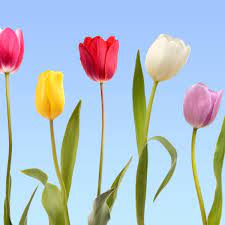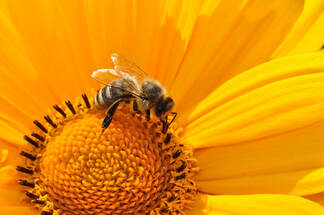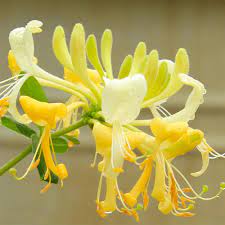|
One of the sad realities of poetry is that virtually every poem misses more readers than it hits. Even famous poems, like "The Raven" or "Nothing Gold Can Stay," impress only a fraction of the readers who encounter them. When it comes to poems posted online, or poems published in journals, the odds of engaging the average reader are steep. Most readers don't finish poems, and even when they do read them all the way to the last line (without skipping), there's usually a point of disengagement before the last line falls. They may technically read all the way to the end, but their thoughts are on who did or didn't text back, or how the cat's doing, as they're reading. Way back in the candle-lit nineteenth century, Mr. Poe insisted that the longest any poem could be and still hold a reader's attention was 100 lines. That was a century before the Internet and social media. These days, many readers jump right from the title to the last line. This seems cruel to poets, and in some ways, it is a cruel reality, but it simply reflects the fact that, for most people, thirty-seconds of attention is a lot. Even from someone who's blood-related to you, or personally mentioned in your poem. A part of every reader is waiting for your poem to fail. It's a form of confirmation bias, which means the default assumption is: if you were any good, you'd already be famous. Since you're not, you must be bad. Then if anything is off in the poem, it confirms this initial idea. And by "anything" I mean grammar errors, typos, cliches, weak images, dull language, or glitchy rhythm and meter. The instant a reader (or editor) spots something "off" in your poem, they're going to scroll away, swipe away, or flip the page. They won't feel cheated, because poems are almost always free, but they'll stand confident in the idea that your work is average or below average and all they'll likely remember is the part that failed. AI can't (yet) help you with this issue. People don't read AI's poems, either. So what can you do? Two things. The first is to accept the reality of confirmation bias. The second is to eliminate all obvious errors in your poems. This means putting more time into each poem. It means setting new poems aside for a while and editing and polishing them after you've had a chance to get some distance. There's simply no other way. To be honest, this is very good news. There seems to be something in human nature that shrugs off the notion of "toss away" poetry, or disposable poems. I'm not saying that all poems should, be weighty or profound, but I think it's a very good thing that some part of us still expects something special each time we read a new poem. There's no shame in wanting artistry from an artist! So, the way to stop the scroll is to stop your own scroll and spend more time on each of your poems to be sure you don't provide convenient escape routes for readers. If you'd like some feedback for your poetry or a bit of help polishing your words, just click one of the buttons below. Or email @ [email protected] Categories All
0 Comments
Here's a really simple branding tip that can be used by any writer or poet and, if you do it right, it can be oh-so-powerful. Ready?
Here it is. Add a touch of mystery to your brand. Whether it's a secret ingredient, a guarded maker's method, or an exotic family history, people are naturally drawn to mysteries. Sometimes not knowing who the author is can be the best method of all, as in the case of the unjustly famous "Simon" Necronomicon. But that won't really work for us. And despite appearances, I'm not suggesting that you really need to do anything dramatic. A simple touch will do. For example, in your author bio you could write something like Banna Bestpoet once lived in a haunted apartment building and her experiences there are reflected in what she writes. Or, Ned Novelmaster was once bitten by a colorful and (currently) unidentified species of snake while hiking in Indiana. You could also dig around into your past or your family lineage to see if you can find something interesting to base your mysterious touch on. Another route is to posit an iconic goal like: Sarah Screenwriter has spent years studying the principles of perpetual motion and hopes to someday build a perpetual motion machine. The most potent mysteries have to do with (of course) sexuality, cultural heritage, money, religion, death, and crime. I'll leave it at that. Is it OK to lie? Well, yeah, but if you do, don't say a lot of lies, just slip one in. I learned that when a talkative and deceitful Sherpa rescued me from freezing to death during a failed climb on Everest. Meanwhile, if you find these branding posts useful, please consider supporting the site. Your contribution is invaluable in allowing me to offer the content. PayPal [email protected] You can get Five Big Branding Tips thru the link below. Pick up my Seven Secrets of Poetry Manual also linked below. And if you'd like some expert help with editing or polishing your poems or you just want a bit of feedback, hit the links below. I look forward to reading your work! By the time Plath came to write her poem "Tulips," her marriage and personal life were hanging by a thread. Her poem "A Winter Ship" foreshadows the erotic breakup between herself and Hughes, while "Medallion" shows Plath's exile from the literary establishment and her awakening as a mystic. "Tulips" is where Plath's genius really begins to assert itself. I've written a long-ish, very scholarly essay on "Tulips" and I encourage you to read it, but expect to be challenged, as the depth of this poem is considerable. What I want to say about it here is simply this. Consider how Plath uses the texture of "blackness" (and silence) in her early poems and how it begins to emerge after "Black Rook in Rainy Weather." What you'll see is: the notion of black moves from the basic notion of existential death to an idea of limitless creation, a la Jung's abyss. I'm not saying she brushed up on Jung; I'm saying, she stepped into an alchemical truth. Plath needed authenticity. She saw the world around her, whether justly or not, as fake. The titles we give each other, our family connections, the literary establishment, the way we view sex and nature -- the way we view and treat animals. This artifice or mendacity as Tennessee Williams called it in Cat on a Hot Tin Roof drives the world, but it doesn't drive the poet's world. In "Tulips" -- Plath explores what it might be like to cast off everything from family to skin and just drift in the universe as being-ness without a name or particular purpose. What she finds is holiness and spiritual fire. She finds "a peacefulness so big it dazes you" -- and though the tone of the poem is sad, or even somewhat morbid, it is truly a poem of birth. Plath emerges from this poem and experience with a great deal of creative energy and a vision that is suitable for its consumption. Her next great poem, "The Moon and the Yew Tree," marks the point at which Plath forever moves from being a seeker to being a Sibyl -- or, as I've been quietly shouting all along -- a Melissae. But you don't need to know all that! Just be aware that by "dying" to the demands of her persona, Plath was "born" into the great poet we all love. That's what's important! Want a little help polishing or editing your poems? Contact me: [email protected] OR use the links below. Support the blog through the link below (leads to my "music guru" page) or donate through PayPal to [email protected] I deeply appreciate your help in keeping the blog alive! Poem tally as of today: 8-14-23: Poems Written: 341 Poetry Submissions: 51 Rejections: 25 (15 tiered) Acceptances: 0 Poem written today: "Sky Slip" Categories All If you're not feeling pain in your creative life, you're no longer growing. If you're experiencing a lot of pain in your creative life, you have a lot of potential left to reach. The old cliché: "No pain, no gain" is probably even more true for creative work than it is for bodybuilding. The kind of pain one experiences when working out -- the "burn" -- becomes something every active person learns to love and look forward to. But I don't know many poets, even the wisest and most accomplished, who look forward to the "burn" of poetry. Not hard to see why. The muse, as another venerable cliché reminds us, is a harsh mistress. You can't overstate this. Even if your poems are currently flowing like rain and you've got enough acceptances, Twitter followers, and blue-ribbons to fill your tombstone, you're still going to face pain as a creator. This is tough in a culture that tries to turn a blind eye to not only suffering, which is all around us, but also to growth. Broadly speaking, in a capitalist culture, you're supposed to get a job, maybe a nice title to throw around, make money, buy stuff, and die. That's it. But poetry wants more from you. Life wants more from you. It wants you to give voice to something only you can bring to life. And to get to that very special, so profoundly vital work, you have to keep growing. Not only that, but if you restrict your feelings in any way as an artist, your work will suffer. I'm not saying your work will inevitably suck, just that it won't be fully realized. That's why being an artist is truly a dangerous business. You have to deal head on with what everyone else runs away from and you have to do it with style and conviction. Darren Aronofsky is one of the more "popular" artist working in past few decades who really has a handle on the pride of suffering that any serious artist needs to maximize their potential. Go back and watch Black Swan again. It's not a tragedy; it's the birth of an artist free of the past, and free of self-imposed limitations. But to get to that place, you have to love your pain. And wear it as a badge of honor. Tally Poems Written: 293 Submission Tally: 47 Rejections: 17 (10 tiered) Acceptances: 0 Poem written today: "Talking Points" Categories All Disaster!!! For the first time since May 3rd, I missed my 4 a.m. wake-up.
But this is actually good news!! Why? Because I felt really bad about it. It made me mad. The reason I overslept is because I had a good time on Sunday and wound up staying up a bit later than I should have. So, I paid the price... It's infuriating to be put off my game like this! Sometimes our emotions send us messages we don't really "get." For example. when we're mad we just feel... mad. In this case, my anger is a positive sign that I'm committed to my regiment, that it's not just a pose or a momentary flight of fancy. So what do I do about botching my Monday wake-up? I carry on as usual, try to make up for the lost hours by working even harder today and get up at 4 a.m. tomorrow! Tally Poems Written: 293 Submission Tally: 47 Rejections: 17 (10 tiered) Acceptances: 0 Poem written today: "Sleeping Late" Music track (unmixed demo) completed "Global Rain." If you click the picture above and go to timestamp: 13:33 you'll hear Sylvia Plath talk about the experience of writing a poem and of being "a poet in rest."
I'll come right out and say: I dislike being a poet in rest and do my best to avoid being one. Even when I'm not actively writing, I'm thinking about poetry a lot, reading poetry, and trying to experience life and my emotions as deeply as possible -- with the aim of not only living to the fullest, but also of writing to the fullest. There's nothing wrong with this. In fact, if you want to reach your potential as a poet, it's probably necessary. In all other pursuits in life, from sports to music, engineering, or just running a small business, those who excel are often those who put themselves 100% into their passion and ambitions. Sylvia Plath died at the age of thirty. Before she perished, she wrote and published two volumes of poetry, a novel, and dozens of individual poems. She, along with Robert Lowell and Anne Sexton gave birth to the Confessional movement in American poetry, but this is the least her accomplishments. If you listen to the interview, you'll hear Plath's contagious joy for poetry and for creation. This is the point of it all, and as a poet, you should as much as you can and you should push as hard as you can to reach your fullest artistic potential. Plath pushed hard every day, so hard, in fact, that she heroically carved out a poetic genius that many falsely assume was her gift from birth. Face it, at some level, none of us really likes being a poet in rest, we're always just waiting for the next breath of inspiration. So be ready and willing to take flight whenever it comes, no matter who tells you otherwise. Poems Written Tally: 292 Submission Tally: 47 Rejections: 17 (10 tiered) Acceptances: 0 Poem written today: "Sea Bee" Two poems drafted this morning: "Honeysuckle" and "Small Self-Portrait." The first poem came after taking a bike ride yesterday and seeing honeysuckle everywhere. Also, I had a brief but troubling encounter with a "fugitive" man who struck up a conversation with me in the park. The second poem, "Small Self-Portrait," is about 8 lines long and I wrote it mainly to fill up the rest of the page in my notebook. Some Stats Writing: 291 poems written since 3-19-20. Probably about 35-40 typed and submitted. Submitting: 45 submissions. 16 rejections. 0 acceptances. 9 tiered rejections. 7 standard. Geeze, Daniel, no acceptances? I thought you were good at this! Well, I'm only submitting to the toughest markets right now by design, so you know how that goes... Since May 3rd, I've been getting up at 4 a.m. each day to work on poems and I'm determined to write a poem each day, type up a draft each day, and make a submission each day. I'm interested to see what comes of this push, foremost in terms of whether or not it seems to make my poems better. I've been feeling inspired lately and I want to make the most of the creative energy while its available! I'm also working on some music tracks and prose pieces that I hope to release and/or publish soon. Meanwhile, I'll probably post more blog entries like this one, just keeping a tally of my trek. Once my energy is expended, I'll almost certainly go back to tips and reviews... I'm seeing good work out there on social media and in the literary journals and 'zines. Keep it up! It's deeply inspiring. Meanwhile if you want another set of eyes and ears for your work, hit me up through one of the buttons below. The editing and critiquing services have been working out extremely well. I've had absolutely zero complaints or dissatisfied customers and have dealt with scores of individual poems. So far, I've heard nothing but enthusiastic praise and many poets have become repeat customers. If you want some help, just click one of the buttons below! Categories All I'd like to thank everyone who submitted to the First Flashes poetry anthology. It's been a great experience reading your poems and responding to them. From the outset, the plan was to choose only a very small number of poems and poets to showcase in the anthology. This, of course, means that more poems had to be rejected than accepted. If your poem was rejected, this doesn't say a whole lot about your creative capability or your poetic skills. It just means your particular poem didn't meet my current needs for this particular project. I urge you to keep an eye on this blog, on my Facebook page, and my Twitter page to stay in the loop for soon-to-be-launched projects and future submission calls. Just by submitting you've gained my interest and earned a well-deserved nod of admiration for your spirit and enthusiasm. I wish all the best in your future creative endeavors and look forward to sharing the published anthology with you all very soon!!! If you're looking for an edge in submitting to publications or contests, consider getting feedback, or a quick polish (or both) through one of the buttons below. Or simply send an inquiry to [email protected] I've also posted a lot of poetry tips, ideas, and exclusive access to my own poems over at my Patreon page. There's also unique pictures and access to my flash-fiction and occult writings. Please help me out by supporting me at Patreon!!! Thanks so much!! @BlackstonDan Categories All Somebody asked me the other day if I thought there was really any point to trying to get your poems published. This is a good question, particularly nowadays when you can just upload anything you want to social media. I think there's a point to trying to publish your poems. In fact, several points. Here's some of them:
There are other reasons, but this should do for now. My advice is: submit your poems for publication! But be prepared for long response times and and unavoidable rejections. The best way to avoid rejection is to send your best, fully polished work to journals you want to publish in with a simple, short cover letter (or email). If you'd like some feedback on your poems, or want to get an edge in submitting to publications or contests, consider getting feedback, or a quick polish (or both) through one of the buttons below. Or simply send an inquiry to [email protected] I've also posted a lot of poetry tips, ideas, and exclusive access to my own poems over at my Patreon page. There's also unique pictures and access to my flash-fiction and occult writings. Please help me out by supporting me at Patreon!!! Thanks so much!! Categories All |









